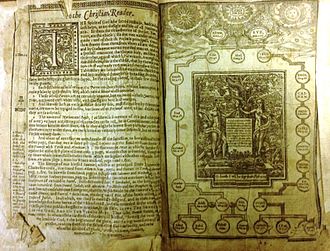Two days after the Solemnity of Christmas, Mother Church celebrates the beautiful memorial of St John the Evangelist. Pope Benedict XVI, seeing the paramount importance the Fourth Evangelist has, he wisely dedicated to him some three catechesis. It is interesting to note that these three catechesis delineate some particular aspect which is deeply connected with this great man, theologian and mystic. In the first catechesis Pope Benedict spoke about John as the son of Zebedee. Here John is seen as the man, son of Zebedee, and brother of James. His name already says much. On this point Pope Benedict commented: His typically Jewish name means: “the Lord has worked grace”. Throughout the gospels we find him so close to Jesus that tradition would have it that, as Pope Benedict XVI succinctly explained, John is the “beloved disciple”, who in the Fourth Gospel lays his head on the Master’s breast during the Last Supper (cf Jn 13, 21), stands at the foot of the Cross together with the Mother of Jesus (cf Jn 19, 25) and lastly is witness both of the empty tomb and of the very presence of the Risen One (cf Jn 20, 2; 21, 7).
From here we can easily conclude that John’s prominence within the apostolic fraternity of Jesus is undisputed. Also, his prominent position with the community of the twelve made him prominent within the first group of Christians. St Paul went so far as to list John among the pillars of that community (Gal 2:9). John’s strong belief and trust in Jesus led him to model his life on a familiar phrase which is found both in his Gospel as well as Letters, namely, we cannot but speak of what we have seen and heard (Acts 4:20). Pope Benedict comments: It is exactly this frankness in confessing his faith that is an example and an invitation to all of us to be always ready to declare with decision our steadfast adherence to Christ, putting faith before every calculation or human interest.
John the man is also John the theologian who teaches us what it means to befriend Jesus. In his Gospel Jesus gives us ample examples of what it means to love him. At one point Jesus says to those who believe in him, including you and I: If you love me, you will keep my commandments (John 14:15). And in the following chapter John presents to us a formidable catechesis on what it means the love of friendship in Jesus’ terms. Here is this splendid catechesis: This is my commandment, that you love one another as I have loved you. Greater love has no man than this, that a man lay down his life for his friends. You are my friends if you do what I command you. No longer do I call you servants, for the servant does not know what his master is doing; but I have called you friends, for all that I have heard from my Father I have made known to you. You did not choose me, but I chose you and appointed you that you should go and bear fruit and that your fruit should abide; so that whatever you ask the Father in my name, he may give it to you. This I command you, to love one another (John 15:12-17).
The same ideas we have just shared concerning John and his vision of being friends with Jesus can be easily recapitulated in his First Letter. In its fourth chapter we read: And we have seen and testify that the Father has sent his Son as the Savior of the world. Whoever confesses that Jesus is the Son of God, God abides in him, and he in God. So we know and believe the love God has for us. God is love, and he who abides in love abides in God, and God abides in him. In this is love perfected with us, that we may have confidence for the day of judgment, because as he is so are we in this world. There is no fear in love, but perfect love casts out fear. For fear has to do with punishment, and he who fears is not perfected in love. We love, because he first loved us. If any one says, “I love God,” and hates his brother, he is a liar; for he who does not love his brother whom he has seen, cannot love God whom he has not seen. And this commandment we have from him, that he who loves God should love his brother also (1 John 4: 14-21).
Pope Benedict’s comments on these quotes from the Johannine corpus, which speak about love, are truly inspiring: If there is one characteristic topic that emerges from John’s writings, it is love. It is not by chance that I wanted to begin my first Encyclical Letter with this Apostle’s words, “God is love (Deus caritas est); he who abides in love abides in God, and God abides in him” (I Jn 4: 16). It is very difficult to find texts of this kind in other religions. Thus, words such as these bring us face to face with an element that is truly peculiar to Christianity. John, of course, is not the only author of Christian origin to speak of love. Since this is an essential constituent of Christianity, all the New Testament writers speak of it, although with different emphases. If we are now pausing to reflect on this subject in John, it is because he has outlined its principal features insistently and incisively. We therefore trust his words. One thing is certain: he does not provide an abstract, philosophical or even theological treatment of what love is. No, he is not a theoretician. True love, in fact, by its nature is never purely speculative but makes a direct, concrete and even verifiable reference to real persons.
Upon reading the Gospel, the Letters and the Book of Revelation, can I not do the following examination of conscience? Am I connected with God, the Source of love? Do I love God in the One whom He sent to save me, Jesus Christ, His Only begotten Son? Are my actions the same actions of Christ Jesus? Am I giving my all and sharing my all, thus becoming Jesus to others?
In case I stumble, John, in the Book of the Revelation, presents to me Jesus who approaches the door of my heart, knocks and is waiting for me for a reply. In chapter three we read: Behold, I stand at the door and knock; if any one hears my voice and opens the door, I will come in to him and eat with him, and he with me. He who conquers, I will grant him to sit with me on my throne, as I myself conquered and sat down with my Father on his throne (Rev 3:20-21).
What a wonderful end St John presents to us if we keep following the Lord till the end!
O God, who through the blessed Apostle John have unlocked for us the secrets of your Word, grant, we pray, that we may grasp with proper understanding what he has so marvelously brought to our ears. Through our Lord Jesus Christ, your Son, who lives and reigns with you in the unity of the Holy Spirit, God, for ever and ever. Amen.












